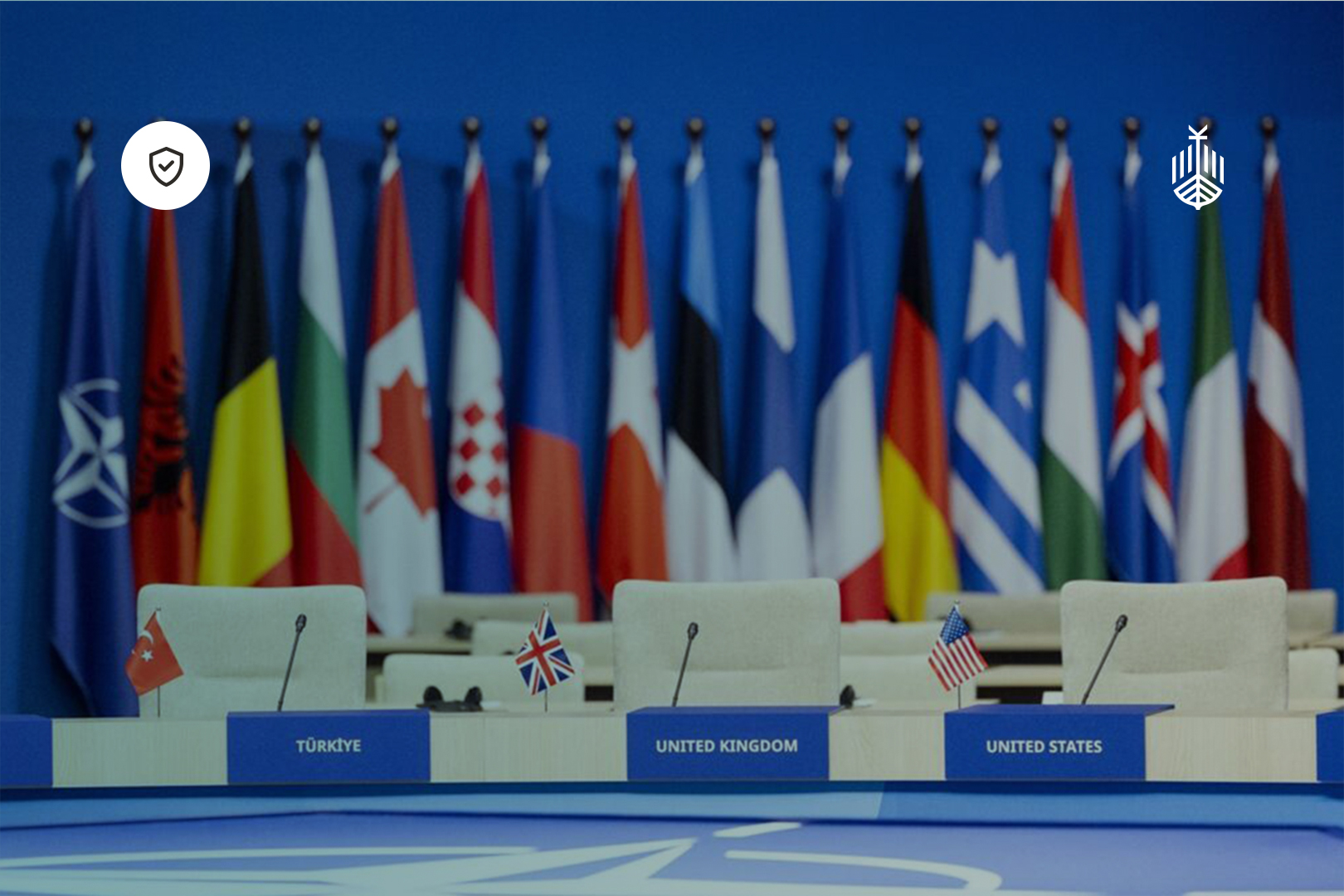Over the past three years, global defence industry supply chains have experienced exceptional disruption, with several unprecedented events occurring simultaneously. The co-occurrence of these events has had a magnifying effect, causing the US Department of Defense to reconsider its approach to supply chain management. In the case of the UK, this review was carried out as part of the Defence Supply Chain Strategy (DSCS) published in November 2022. COVID-19, Brexit, the energy crisis and shortages of key components such as semiconductors have caused supply chain problems never seen before in the UK, with the previous strategy being developed at a time when continental Europe was not yet engaged in active conflict.
As these heterogeneous events accumulate, a new approach to supply chain management is required, and policy makers are recognising that securing supply chains requires a shift from a focus on efficiency and cost reduction. This course of action comes after years of austerity in the UK have forced departments across the UK government to cut spending, with Strategic Command making the wise decision to instead put in place processes to mitigate supply chain shocks caused by external factors.
Because the costs of responding to supply chain disruptions are not insignificant, a focus on preventive interventions can contribute to overall cost reductions and higher levels of efficiency. Working with allies and industry, the DSCS provides that supply chain shocks can be mitigated by removing existing reliance on 30-day just-in-time techniques. For this approach to be successful, governments must ensure that open and transparent communication channels are maintained between all stakeholders.
A fortified supply chain is key
From advanced engineering and manufacturing to innovation in cutting-edge technology, aerospace, defence, security, and space are vital to the UK’s growth and its thriving manufacturing ecosystem, making a key contribution to some of the biggest challenges of our time. With opportunities ranging from net zero aviation, to safeguarding national security, ensuring the regulation of space, and strengthening our defence and security industrial base as geopolitical tensions continue to rise, UK prosperity is fuelled to the tune of £37bn in value add to the economy.
All entities are reliant on their supply chain – and with todays’ complex business landscape the importance of robust supplier relationships is more prevalent than ever, and efforts to fortify those supply chains must be industry-led. The Supply Chain Solutions Framework, launched just 18 months ago, convenes leading primes, government and regional alliances into a singular cross-sector initiative.

Open to all UK aerospace and defence organisations, the framework is a comprehensive set of tools and services to help companies improve their capabilities across all pillars of the framework, including competitive performance. It highlights opportunities to invest in innovation and digitisation, and support aviation’s net zero target by outlining incremental steps towards sustainability.
Pivotal to ongoing success of supply chain empowerment initiatives is investment in leadership, innovation, operational excellence, and skills development; all while driving a strong mandate for a process of continuous improvement. Supply Chain Solutions has just that, and with efforts to enhance and develop the programme well underway, September saw the UK Ministry of Defence, Boeing Defence UK, and Babcock International signed up to the framework.
We cannot afford to take supply chain excellence for granted
It is no mean feat to excel at every level of the value chain, and recognition of excellence is vital. Of course, a key pillar of the Supply Chain Solutions Framework is the SC21 competitiveness programme, which is designed to accelerate the competitiveness of the aerospace and defence industries. Launched 17 years ago, it has grown into the largest supply chain improvement programme in our sectors, supporting more than 1,000 business in improving their competitive performance, and with its recent enhancement is now aiming to fortify UK supply chains for years to come.
An enhanced diagnostic assessment tool applying more than 16 years’ experience gained in the successful delivery of the SC21 and SC21 Competitiveness and Growth programmes - which developed the National Manufacturing Competitiveness Levels (NMCL) system - is used to assess an organisation’s excellence.
There are two elements which are used to form an assessment of a company’s capability:
- Benchmarking competitiveness to establish the current position and future targets for the company as seen from the customer’s point of view
- Understanding a company capability across four key themes as follows: competitive strategy and management systems, NPI lifecycle and management, operations, and supply chain.
Valid for one year, an SC21 award is a hallmark of growth and continued excellence in the supply chain, which can be retained or levelled up, in consecutive years. As an example of the benefits of SC21, organisations receiving awards have seen improvements in their bottom-line performance, for example through the reduction of cost and increasing the quality and delivery of products and services. In addition, the SC21 programme supports organisations on their sustainability journey while actively fostering their investment in innovation and the development of intellectual property.
Collaborative support delivers additional supply chain resilience
With the support of specialised partners included the Aerospace Technology Institute (ATI) and Ministry of Defence (MOD), ADS is actively involved in the delivery of programmes such as the National Aerospace Technology Exploitation Programme (NATEP), the Defence Technology Exploitation Programme (DTEP) and the Space Technology Exploitation Programme (STEP).
DTEP is a technology development programme that seeks to improve the competitiveness of the UK defence supply chain. It is overseen by the Industrial Programmes teams in the Directorate of Industrial Strategy and Exports (DISE) and delivered by the Defence and Security Accelerator (DASA), supported by Innovate UK. Through DTEP, SMEs across the UK are being inspired to win new business, develop industrial capabilities, and provide new cutting-edge answers to defence technology problems at home and abroad. In similar style to the NATEP model of mentoring, DASA Business Relationship Managers help companies develop their proposals and can also provide guidance on collaboration agreements and intellectual property protection. Full information on DTEP including the application process can be found on the GOV UK website.
Supporting advanced manufacturing and engineering through 2024 (and beyond)
To understand the pain points of its members, ADS issues regular Industry Outlook Surveys which identify and track key issues; for the third quarter of 2023, 92% of respondents expected business turnover to increase or stay the same, and workforce and skills shortages were recording as having a significant impact on business growth opportunities in the next three months.
Conclusion
The Defence Supply Chain Strategy introduced a bimodal operating system designed to allow supply chains to more easily switch between modes of operation, thereby reducing the impact of external events. Of particular note is the active review of various supply chains as part of Mode 2 of the bimodal system. This allows planners to identify potential vulnerabilities in the chain or vulnerabilities with increased risk of disruption, and address predictable threats before they cause problems. This is effective for more easily predictable issues – for example disruption expected at the end of the Brexit transition period – but cannot predict all disruption factors.
The interactions between defence and commercial industries are becoming increasingly intertwined, both in defence procurement and the influence of commercial markets on defence supply chains. The defence industry is increasingly facing disruptions from commercial sources, such as instability in the supply of semiconductors and box shortages due to the online shopping boom that has hit the supply of various military supplies.
The DSCS cannot directly resolve this issue, and strategic planners must ensure continued cooperation with civilian industries that supply both civilian and military markets. The DSCS has set out plans to overhaul the current management of the UK's defence supply chain and the proposed changes could significantly improve system resilience and reduce the impact of unexpected and increased supply chain disruptions.
Successful implementation of this directive will require implementation across all stages of the supply chain and with companies that do not traditionally supply the defence industry but are increasingly involved in the supply chain. There must be ongoing, thorough and transparent discussions.













